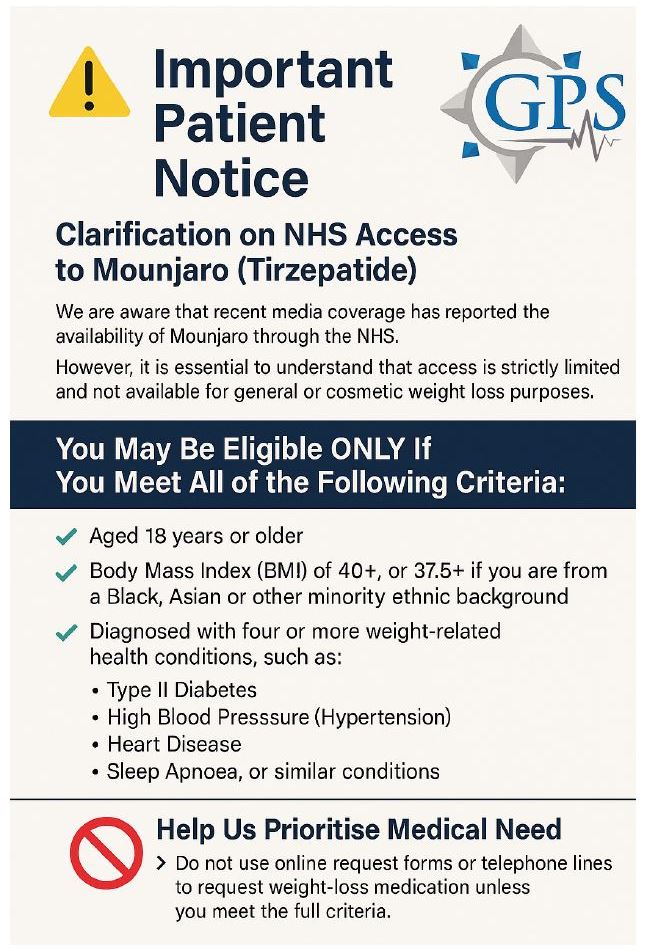We've put some small files called cookies on your device to make our site work.
We would also like to use google translate cookies and analytical cookies to understand how our site is used and improve user experience. Analytical cookies send information to Google Analytics.
Let us know your preference. We will use a cookie to save your choice. Before you make your choice you can read more about our cookie policy.
You can change your cookie settings at any time using our cookie policy.
You can order your repeat prescription in the following ways:
Please note: you can no longer order prescriptions by email and pharmacies cannot order on your behalf. This change helps reduce medicine waste, prevent errors, and give you more control over your prescriptions.
When ordering medication online: please only include prescription-related notes. Appointment requests, test results, or health concerns will not be processed this way. For medical issues or bookings, please contact the health centre directly using the usual methods.
Remember
Tracking your Prescription request
Through the NHS App you can:
For more help, see Request or view prescriptions - NHS App help and support - NHS
If you have a long-term condition, you will first be invited to a face-to-face pre-annual review appointment around your birthdate. This appointment helps us review your results and prepare for the next step. You will then be invited to a second appointment (either face to face or telephone) for your annual long-term condition and medication review with a nurse, pharmacist, or GP. This review ensures that your medications are prescribed appropriately, optimised, and are safe. You will receive up to two reminders for both appointments. If you do not book or attend these appointments, your GP may reduce or suspend your medication supply for safety reasons. This is done for patient safety and will be reversed once the annual review is completed.

For your local Pharmacy please click here.
